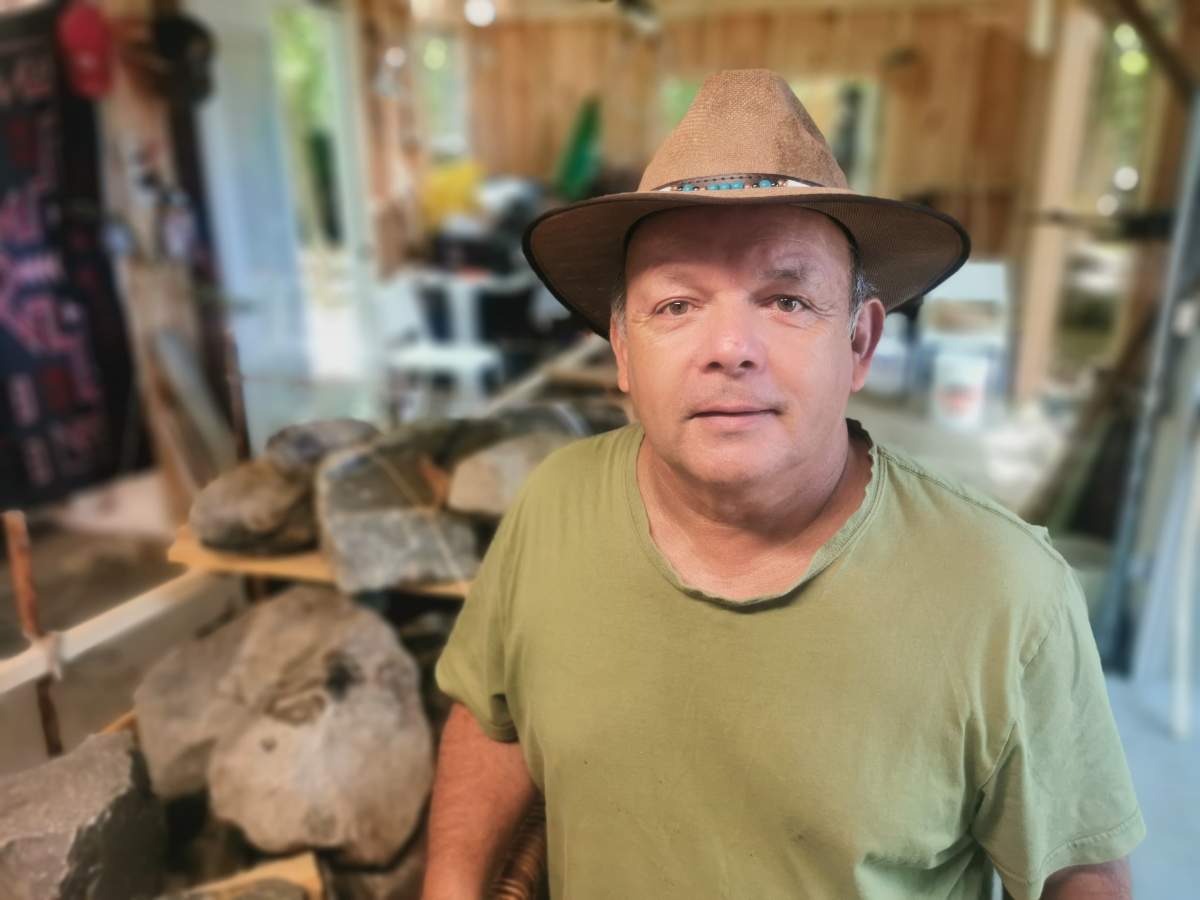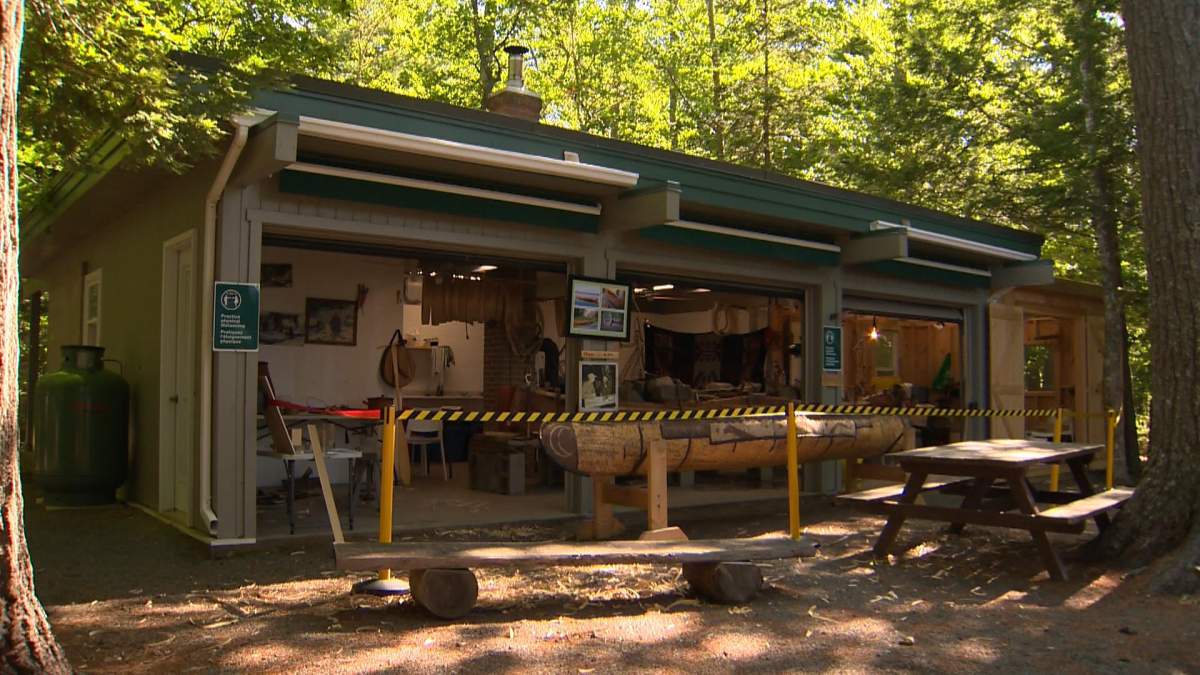With the warm summer sun dancing behind him, Todd Labrador, a Mi’kmaw craftsman and artisan, steadily works away on a tradition his great grandfather used in the 1800s as a means of survival.

“It was what we consider today a vehicle, because the rivers and the lakes was the highway. And you’d take a birch bark canoe and you can put hundreds of pounds of whatever you have and then transport it across quite easily,” Labrador said.
Labrador is in the process of building a 21-foot birch bark canoe that was traditionally used to transport large loads across rough ocean waters.
In collaboration with Parks Canada, Labrador is building the canoe in a shop near Merrymakedge Beach in Kejimkujik National Park.

Labrador’s great-grandfather, Joe Jeremy, was no stranger to long journeys on the mighty Atlantic ocean.

Get breaking National news
“Paddling across the Bay of Fundy, paddling to Newfoundland,” Labrador said.
Without the birch bark canoes, Labrador says the Mi’kmaq communities would have been forced to transport everything by foot.
He expresses an immense amount of gratitude to his great-grandfather for doing everything in his power to prevent his father from ending up in a residential school.
If that had happened, Labrador is almost certain the traditional craft and other aspects of their Mi’kmaq culture would have been stripped from their family.
“The black vehicle came and it was the Indian agents coming to get the children. They would all hide in the woods. How great-grandfather never ended up in jail, I don’t know,” Labrador said.
Sophie Borcoman, the visitor experience manager at Kejimkujik National Park, said Parks Canada is committed to creating a system of national heritage places that “really celebrates Indigenous cultures, their history, and contemporary attachment to these places.”
Borcoman says people can interact with Labrador from a safe physical distance while learning first-hand about his Mi’kmaq ancestry.
“I really encourage Nova Scotia residents, visitors to Nova Scotia this summer to take advantage of phenomenal opportunity that is perfectly, in fact, set up for a physical distancing experience,” she said.
For Labrador, it’s a labour of love that he has a passion for sharing with others.
He’s built previous birch bark canoes with youth from Bear River First Nation and says one of the greatest rewards of his craft is being able to connect with loved ones passed on while he’s immersed in his work.
“When I’m here alone and it’s just the wind, and the water, and me, and the little animals running around, I feel my ancestors are here with me and very happy to see this happening,” he said.
Labrador plans to launch the finished birch bark canoe sometime this fall.
- Trump threatens Canada with 50% tariff on aircraft sold to U.S.
- Stepfather of two missing N.S. kids charged with sexual assault of adult, forcible confinement
- Canadians have billions in uncashed cheques, rebates. Are you one of them?
- Gun buyback not hurt by some provinces, police refusal to help: minister










Comments